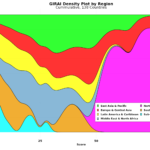The use of the words “human rights” in the English language only started in the 1940s. It was just until the late 1970s that the concept as we know it today emerged in full force. Nevertheless, historians of human rights have been able to trace the idea back to the Greek Stoics and study its evolution since then.
In his book on the topic, Moyn argues that these efforts are not accurate as the concept of rights and human rights have evolved historically. It is also essential to avoid assuming that universal claims about “the rights of man” are the same as the contemporary concept of human rights.
Looking back in history, Moyn tells us that when it comes to rights two distinct but connected patterns can be detected: 1. The link between rights and citizenship; and 2. The relationships between rights and the state as both a granter and protector of “the rights of man.”
Greece is an excellent example of the first. Claims about universality here fail as Greek citizenship excluded by default, women, and slaves. The struggle for Women’s rights in the late 19 century is another example.
The Enlightenment could be seen as an engine for the second pattern with calls for equality among all people, a la French Revolution. 19th Century revolutions and social movements can, in fact, be seen as people’s struggle to ensure their own rights were recognized and protected by the state. At the time, “the rights of man” had a heavy emphasis on property rights and thus many of these movements adopted an anti-rights approach.
With this in hand Moyn then explores the history of the human rights concept since the 1940s. While the UN approved the Universal Declaration of Human Rights in 1948, little to no action did take place at the international level. Overshadowed by the anti-colonialist movement and the independence of several former colonies, human rights were of small consideration in this process.
The ideas of the self-determination of people took center stage in the process thanks in part to the Carter Administration in the US and the emergence of Amnesty International. The latter benefited from Soviet and Eastern European dissidents as well as from Latin American voices denouncing coups, military rule and outright repression supported by US foreign policy.
The scene started to change in the late 1970s when human started to replaced anti-colonialism and revolutionary movements to become the prime mover for progressive social change. Forty years later, human rights utopia is now being challenged from many sides. But its replacement has yet to emerge – unless we consider populist ideology as its bastard child.
Cheers, Raúl
Moyn, Samuel. 2010. The Last Utopia: Human Rights in History. Cambridge: Harvard University Place. ISBN: 978-0-674-04872-0.





